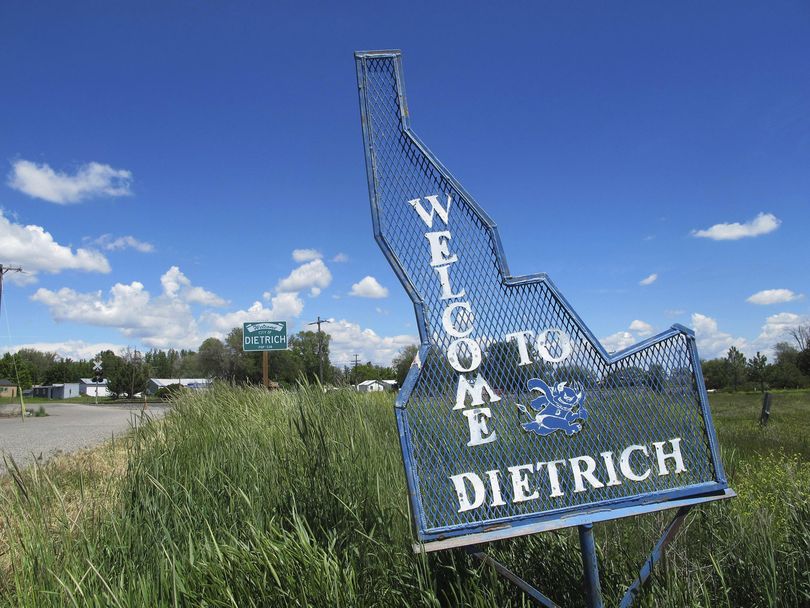Locker room assault sparks effort to heal Idaho communities

Here's the full AP report from spokesman.com:
By Kimberlee Kruesi, Associated Press
BOISE – Bukky Ogunrinola’s mother taught her years ago to use caution in how she dressed and presented herself in public. Being a young black woman in Idaho meant living in a world where she’s sometimes greeted with suspicion.
Still, the 16-year-old was stunned to wake up one cold January morning to see the windows of her family’s SUV smashed and the words “go back” in white paint splashed across the vehicle.
“I’m a woman of color, and I’m an athlete in Idaho. That’s not that easy. I mean, I think there’s three of us in Idaho?” said Ogunrinola, whose family emigrated from Nigeria 14 years ago. “It feels like people in Idaho want to watch us play sports, but they don’t have our backs when push comes to shove.”
Community leaders in Idaho are collecting stories of violence and discrimination like Ogunrinola’s in the wake of a sexual assault of a disabled black athlete by his white teammates that shocked not only a small town but residents across the state. They hope to identify possible policy changes or improvements to community outreach.
The effort is being launched in a state better known for its potatoes than its diversity, but that isn’t stopping advocates from working to identify solutions to limit acts of hate.
“We are coming together as a community,” said Kelly Miller, director of the Idaho Coalition Against Sexual and Domestic Violence. “We know healing from discrimination and pain begins when we’re heard and when we understand the impacts of violence in communities.”
According to Idaho State Police statistics, hate crimes in the state have gradually declined since 2011, with 22 hate crime incidents being reported in 2015. But nearly half were against a person of color.
Census data show Idaho’s population is 89 percent white and just 0.6 percent black. Another 5.1 percent identifies as other.
The effort began after John R.K. Howard and two teammates were charged with sodomizing a black teenage boy with a clothes hanger in 2015 in the locker room of the high school in the tiny farming town of Dietrich, known for its deeply religious population. The sex assault charge against Howard, who was 18 at the time of the attack, was later dropped. Instead, he was sentenced in March to probation for felony injury to a child.
News of the lesser charge sparked outrage and confusion. Critics argued the judge in the case failed to recognize its racial implications and was too lenient during Howard’s sentencing.
As the case moves through civil court, others are working to ensure communities and schools remain safe spaces.
“This didn’t happen in a vacuum, and it didn’t happen overnight. This was something that was progressively taking place,” said NAACP Treasure Valley President Charles Taylor. “If this can happen in Dietrich, it can happen in Boise. It can happen anywhere.”
Last week, roughly a dozen advocacy groups held their first forum in Boise to allow people to share their personal stories of discrimination and what resources they used to move forward.
“Think of everything this one young man represents,” said state Sen. Cherie Buckner-Webb, Idaho’s first and only black lawmaker, who helped moderate the forum. “Disabled, African-American, mixed family, religious community. In the wholeness of who he is, he’s a microcosm of what we are and what we cannot forget.”
The event attracted roughly 100 people.
Ogunrinola spoke about what it’s like living and playing high school basketball in Nampa, a city of about 89,000 just west of Boise. She also described the pain her family experienced after the vandalism to their SUV, which is being investigated as a possible hate crime.
“I don’t want to be the next hashtag,” Ogunrinola said. “But if I put this hood up, I could be next.”
Others at the forum described the challenges of living with a mental disability and the importance of building relationships to advocate for people with them.
One woman talked about being raped as a teenager and not knowing whom to talk to afterward. A handful of people discussed the pressures of being a minority in an overwhelmingly white state or the stress that comes with adopting minority children.
Their stories will be transcribed and later handed over to the state attorney general’s office and Idaho Department of Education, both of which have pledged to work with organizers in the initiative to compel change.
The advocacy groups are planning similar events in Moscow and Twin Falls later this year, Miller said.
“I’m looking forward to sitting down with these groups in the coming months, and I’m optimistic that together we can accomplish meaningful change,” Attorney General Lawrence Wasden said in a statement.
